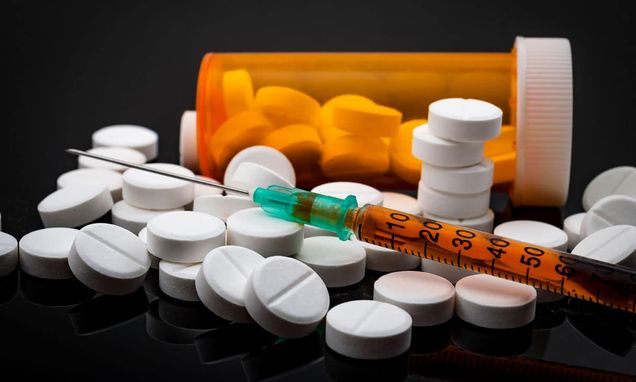Tagged: An Act Updating Laws Relating to Dangerous Drugs and Protecting Witnesses
Massachusetts’ “Death By Dealer” Bill is the Wrong Opioid Policy
On January 30, 2018, the Massachusetts Joint Committee on the Judiciary heard testimony on S. 2158, An Act Updating Laws Relating to Dangerous Drugs and Protecting Witnesses. Despite its relatively innocuous title, the bill, proposed by Governor Charlie Baker, represents a substantial scaling up of the War on Drugs in the Commonwealth.
Like many other states, Massachusetts is in the midst of a public health crisis. The opioid-related death rate in the state has surpassed the national average, with a nineteen percent increase in overdose deaths between 2015 and 2016. In addition, three-quarters of opioid-related deaths in 2016 involved fentanyl, a synthetic opioid that is roughly 50 times more potent than street heroin. As opioid overdoses decimate local communities, officials are understandably investigating ways to curb the epidemic, and one solution, to which legislatures are increasingly turning, entails drastically increasing punishment for drug crimes that result in death.
 For decades, federal prosecutors have been able to pursue stringent penalties in cases of “death by dealer.” Passed by Congress in 1988 in response to the highly publicized death of a University of Maryland basketball star who overdosed on cocaine just days after being drafted by the Boston Celtics, the so-called “Len Bias” law sets mandatory minimum sentences for selling drugs that lead to another person’s death. More recently, twenty states have adopted analogous laws, and several others have “McGyvered” existing homicide statutes—e.g., reckless homicide and felony murder—to prosecute the same offense. With Governor Baker’s bill, Massachusetts joins a number of additional states with pending legislation that would allow prosecutors to charge drug sellers with murder or manslaughter.
For decades, federal prosecutors have been able to pursue stringent penalties in cases of “death by dealer.” Passed by Congress in 1988 in response to the highly publicized death of a University of Maryland basketball star who overdosed on cocaine just days after being drafted by the Boston Celtics, the so-called “Len Bias” law sets mandatory minimum sentences for selling drugs that lead to another person’s death. More recently, twenty states have adopted analogous laws, and several others have “McGyvered” existing homicide statutes—e.g., reckless homicide and felony murder—to prosecute the same offense. With Governor Baker’s bill, Massachusetts joins a number of additional states with pending legislation that would allow prosecutors to charge drug sellers with murder or manslaughter.
While these laws may seem like a good idea at first—as a way to cripple the organized drug trade and to give prosecutors new tools to attack upper echelon drug traffickers—the criminalization of accidental overdose has a number of possible unintended consequences. Massachusetts legislators should carefully consider these effects that may backfire and exacerbate an already dire situation.
Although proponents argue that drug-induced homicide law will prevent future drug trafficking, there is broad consensus that harsh sentences have minimal, if any, deterrent effect. Contrary to conventional wisdom, studies have found that, among individuals facing drug-related charges, variations in prison and probation time have no impact on recidivism rates. The focus on supply reduction also seems misplaced: many studies suggest that market demand for drugs drives a continuous “replacement effect,” such that incarcerating drug dealers simply “open[s] the market for another seller.” Instead, such policies may inadvertently increase drug-related violence and lead to dangerous fluctuations in the contents of street drugs.
Drug-induced homicide laws also risk undermining Good Samaritan policies. As overdose deaths skyrocket, 37 states, including Massachusetts, have enacted laws to reduce the legal barriers to calling 911 in the event of an emergency. Most of the laws are limited to drug possession, however; they do not encompass drug selling or homicide. Although popular imagination places drug users and drug sellers in separate buckets, reality proves far blurrier: drug users frequently participate in the supply side of the market—whether by actively selling drugs or by helping in some way, such as acting as a lookout—in order to support their habits. Ostensibly intended to prosecute high-level drug suppliers, in practice, these statutes often ensnare family, friends, and acquaintances who supplied the drugs and who themselves may have a substance use disorder. In Wisconsin, an analysis of the 100 most recent drug-induced homicide prosecutions found that “nearly 90% of those charged were friends or relatives of the person who died, or people low in the supply chain who were often selling to support their own drug use.”
While prosecutors talk about “aggressively prosecuting those people that peddle the poison in our community,” users counter that “every drug-induced homicide charge that is made sends a ripple through the using community to not call 911 and might result in somebody else’s death.” In fact, a recent study found that a majority of surveyed drug users feared calling 911 during an overdose due to concerns about criminal repercussions. Overall, then, treating overdose deaths as crime scenes and prosecuting overdose witnesses as perpetrators of murder or manslaughter limits the potential benefits of Good Samaritan legislation and other efforts to reduce overdose deaths.
Finally, punitive approaches, which place the blame for overdose deaths on drug sellers, focuses on the wrong problem. Criminal sanctions have the benefit of immediate visibility—they make it appear to constituents that policy makers are doing something. Public health approaches, on the other hand, are virtually invisible because, if successful, the harms that they target will never materialize. This “prevention paradox” often leads policy makers towards individualized, instantly tangible solutions to complex problems such as drug-induced homicide laws.
The opioid crisis is, fundamentally, a structural issue, rooted in poverty, lack of opportunity, and social isolation. Structural issues require structural solutions. Legislators are understandably grabbing at any and every straw to quell what seems like an intractable problem, but, at a time when much of the country seems poised to approach problematic substance use as a health issue, rather than a criminal one, it is critically important that Massachusetts policy makers carefully consider the ways in which S. 2158’s drug-induced homicide provision might backfire.
Rather than focusing on misguided “quick fixes” that further criminalize vulnerable populations, legislators should, instead, redirect their energies towards public health strategies with demonstrated effectiveness in reducing fatal overdoses. These include implementing comprehensive, evidence-based addiction prevention initiatives; increasing overdose education and naloxone access; promoting the use of medication-assisted treatment for opioid use disorders; and expanding and maintaining insurance coverage for addiction treatment. The United States has been trying to arrest its way out of substance use and addiction for decades, and today’s crisis attests to the futility of that approach. If our policy makers are serious about ending the opioid epidemic in the Commonwealth, they need to shift their focus from policing and prisons to people and public health.
 Alexandra Arnold anticipates graduating Boston University School of Law in May 2019.
Alexandra Arnold anticipates graduating Boston University School of Law in May 2019.


